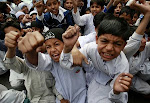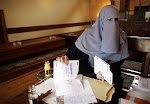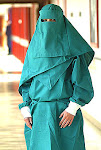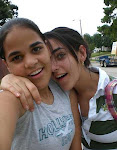
GAZA CITY, Gaza Strip (AP) - In four days of Israeli airstrikes, Rasha Khaldeh has already fled twice.
First she left her home, fearing Israeli warplanes would target her Hamas neighbors, only to be forced from her uncle’s house when it began to sway during nearby shelling.
Borders to the tiny territory are closed, and Gazans don’t know where to turn for refuge.
Hemmed in, Khaldeh, a secular university student, resorted to Muslim prayers and lowered the ring of her cell phone, a move to help her identify the approach of Israeli pilotless drones.
The strikes have killed more than 370 people, including at least 60 civilians, according to a U.N. tally. Most bombs hit their intended target, but the damage spreads to surrounding areas.
Borders with Egypt and Israel have been sealed for the most part since the militant group Hamas seized power of Gaza in June last year, confining 1.4 million residents in the coastal territory, 25 miles long and six to nine miles wide.
Even those who managed to flee to Egypt during a border breach on Sunday were returned to the coastal territory.
“Asylum (is) being totally denied to Gaza’s population. They have to stay in this tiny, dangerous place,” said Karen Abu Zayd, of the U.N. aid agency for Palestinian refugees.
On the Israeli side of the border, attacks by Hamas have killed four people since the weekend, and sent many more running for bomb shelters—some of them in cities under threat of attack for the first time, as the range of the rockets grows.
“It’s very scary,” said Yaacov Pardida, a 55-year-old resident of Ashdod, southern Israel’s largest city, which was hit Monday. “I never imagined that this could happen, that they could reach us here.”
Israel has warned Gazans of air strikes through leaflet drops—including one Tuesday that said the network of underground tunnels linking Gaza with Egypt, some used to smuggle weapons, would be bombed. And they have broadcast radio announcements telling residents to flee their homes if they are hiding weapons or militants.
But many Gazans do not know what their neighbors are hiding, and in crowded communities missile strikes can inflict damage beyond their intended targets. So, residents are left to second-guess the Israeli military.
Khaldeh, 22, fled with her family from their central Gaza Strip home late Sunday after Israel began striking the homes of Hamas militants. Her neighbors are local Hamas field leaders, and the family feared Israel would target the nearby home, putting them at risk.
They sped to a relative’s apartment in a Gaza City high-rise—but were only safe for two days. Early Tuesday, Israeli aircraft pounded nearby Hamas government buildings, causing the apartment building to sway wildly. Fearing it would collapse, the family went back to their home in central Gaza.
“I don’t know what’s safe anymore,” said Khaldeh, who keeps a tiny Muslim holy book, the Quran, encased in a gold box on a necklace, hoping it will keep her safe.
Some Gazans believe the key to their safety is staying in apartments next to sand dunes, which they believe will absorb blast waves from nearby explosions.
While other Gazans have taken up new rituals to help ease their concerns.
Anis Mansour, 22, who lives in the town of Rafah near the Egyptian border, briefly mumbles a prayer for his safe return every time he leaves his house.
Omar Azayzeh, a 34-year-old medic, works extra hours hoping that by helping save others he’ll shield his family from harm. His wife, meanwhile, keeps their apartment windows open in an effort to avoid glass shattering near their three young children.
Azayzeh lives in a compound with his extended family about 200 feet from a Hamas-run medical center in the central Gaza town of Deir al-Balah. After Israel bombed the Hamas-run Islamic University in Gaza City on Sunday, Azayzeh worried the center would also become a target.
His initial reaction was to send his family to his sister’s house, farther away. Then he realized she lived next to another prime target—a Hamas-run police station.
Abu Zayd, the U.N. official, said the agency is preparing to turn U.N.-run schools in Gaza into shelters. Already, 200 residents slept at a U.N. school close to Gaza’s border with Egypt on Sunday after Israel bombed nearby tunnels.
She said the U.N. had informed Israeli officials of their locations and did not expect them to be targeted.
But residents aren’t so confident. “They have shelled mosques, all sorts of places. We can’t distance any possibility,” Azayzeh said.






















No comments:
Post a Comment